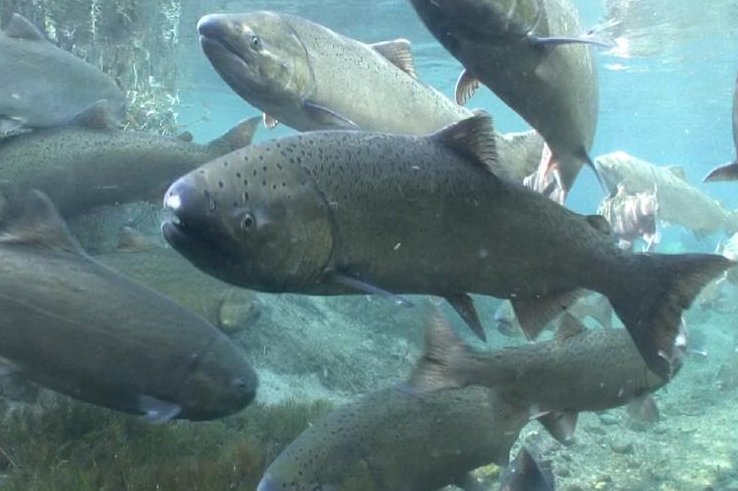Due to declining Chinook salmon populations in the biggest rivers in the two states as a result of years of drought, the recreational and commercial salmon fishing season has been suspended along the beaches of Oregon and California through the middle of May.
The Klamath River fall-run Chinook salmon and the Sacramento River fall-run Chinook salmon returned to California’s Central Valley last year in “near-record low numbers,” according to the National Oceanic and Atmospheric Administration Fisheries, which announced the in-season measure to safeguard them.
Between Cape Falcon, Oregon, and the border with Mexico, ocean salmon fishing will be prohibited beginning this Friday and lasting until May 15. Off the Californian coast, sport fishing was supposed to start on April 1.Given the poor abundance projections for both the Klamath and Sacramento fall Chinook, the council advocated closing all recreational fishing in the California ocean from the Oregon-California border to the U.S.-Mexico border on Friday.
On the West Coast of the United States, PFMC oversees fisheries for about 119 species of salmon, groundfish, and coastal pelagic species, such as sardines, anchovies, and mackerel. Also, the council oversees migratory species including tuna, sharks, and swordfish.
The critically low estimates for both the Klamath and Sacramento River fall Chinook stocks have dominated conversations about the 2023 salmon season, according to Merrick Burden, executive director of the Pacific Fishery Management Council.”The council will need to deliberate on the best path forward in setting 2023 seasons with considerations for economic implications to the coastal communities and the low abandons of key salmon stocks and the need to ensure future generations of healthy salmon returns,” Burden added.
PFMC plans to hold a public hearing next week in Santa Rosa, Calif., on the three proposals. Final regulations will be adopted when the council meets next month.
“Meeting our conservation and management objectives continues to be the highest priority for the council,” said Council Chair Marc Gorelnik.





